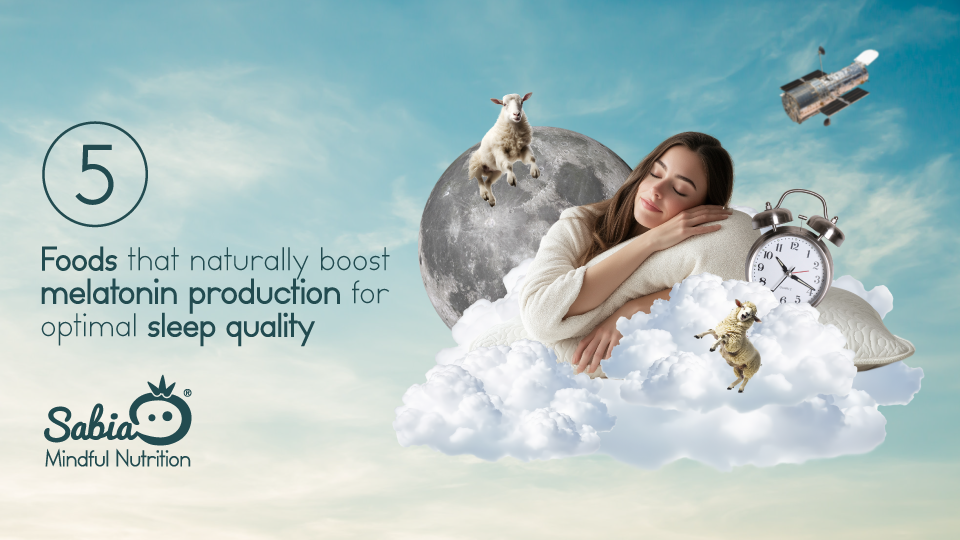Health
5 Foods That Naturally Boost Melatonin Production for Optimal Sleep Quality
Discover the powerful natural foods that can help you improve your sleep cycle and enhance melatonin production
Understanding Melatonin and Sleep
Melatonin is a crucial hormone the pineal gland produces that regulates our sleep-wake cycle. Often called the “sleep hormone,” melatonin is vital in maintaining healthy sleep patterns. While many people turn to supplements, nature has provided several foods that can naturally boost melatonin production and improve sleep quality.
The Science Behind Melatonin-Rich Foods
Before diving into our top 5 foods, it’s essential to understand how specific nutrients can support melatonin production. Some foods contain melatonin directly, while others provide nutrients that help the body produce this essential sleep hormone more effectively.
Top 5 Melatonin-Boosting Foods
1. Tart Cherries: The Sleep Superfruit
Tart cherries are a powerhouse when it comes to natural melatonin production. Research has shown that these small fruits contain one of the highest natural melatonin concentrations. Studies published in the Journal of Nutrition have demonstrated that consuming tart cherry juice can:
- Increase sleep duration
- Improve sleep quality
- Reduce insomnia symptoms
- Regulate sleep patterns
Before bedtime, a glass of tart cherry juice can be a delicious and effective way to support your sleep cycle.
2. Nuts: Almonds and Walnuts

Almonds and walnuts are nutritional champions for sleep health. These nuts are rich in:
- Magnesium: A mineral crucial for sleep regulation
- Melatonin: Naturally occurring in these nuts
- Healthy fats that support hormone production
Walnuts, in particular, are exceptional. They contain melatonin and essential omega-3 fatty acids, which can help reduce stress and anxiety and further promote better sleep.
3. Fatty Fish: Salmon, Tuna, and Mackerel
Fatty fish is more than just a protein source. They are packed with:
- Vitamin D
- Omega-3 fatty acids
- Compounds that support melatonin production
The combination of nutrients in fatty fish can help regulate serotonin, a precursor to melatonin. Consuming fish like salmon 2-3 times a week can significantly improve your sleep quality.
4. Eggs: A Surprising Sleep Supporter

Eggs might not be the first food you associate with sleep, but they are remarkably beneficial:
- Rich in tryptophan: An amino acid that helps produce serotonin and melatonin
- Contains vitamin D
- Provides high-quality protein that stabilizes blood sugar levels
The protein in eggs can help prevent middle-of-the-night hunger and provide a steady release of nutrients that support sleep.
5. Mushrooms: The Unexpected Sleep Aid
Certain mushrooms, especially white button and shiitake, are excellent sources of natural melatonin. They offer:
- Direct melatonin content
- Immune-boosting properties
- Low-calorie nutritional support
Adding mushrooms to your evening meal can be a subtle yet effective way to enhance melatonin production.
Tips for Maximizing Melatonin Production
- Consume these foods 1-2 hours before bedtime
- Avoid heavy meals close to sleep time
- Combine multiple melatonin-rich foods
- Maintain a consistent sleep schedule
- Limiting blue light exposure before bed

Potential Considerations
While these foods are generally safe, individuals with specific health conditions should consult their healthcare provider. Allergies, dietary restrictions, and individual metabolic differences can impact how these foods affect sleep.
Natural food sources offer a holistic approach to improving sleep quality. By incorporating these five melatonin-boosting foods into your diet, you can support your body’s natural sleep cycle without relying solely on supplements.


